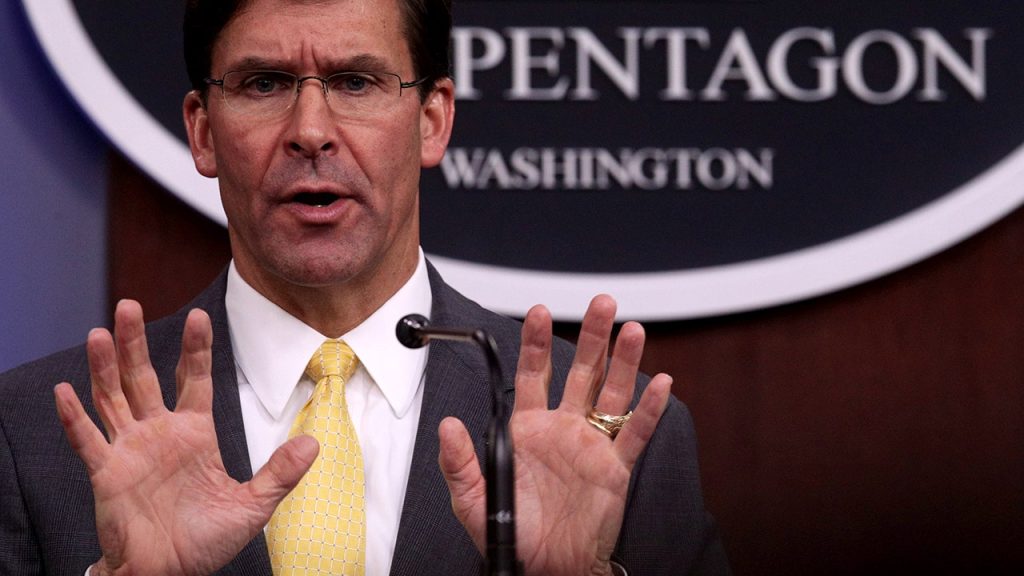Former Defense Secretary Mark Esper stated that Iran is likely to retaliate against Israel for a recent missile strike that hit Tehran’s consulate in Damascus, Syria. Israel did not claim responsibility for the strike, which killed senior Revolutionary Guard Corps commander Mohammad Reza Zahedi. A Lebanese security source identified Israel as the responsible party, but an Israeli military spokesperson declined to comment. Esper predicted that Iran would take limited action against Israel to maintain credibility with their proxies in the region and satisfy hardliners within the theocracy, while also avoiding a wider conflict that could be disastrous for Iran.
Iran has expressed its intention to take a decisive response to the purported Israeli strike, which resulted in the deaths of six other Iranian military advisers along with Zahedi. A senior Biden administration official confirmed that President Biden and Prime Minister Netanyahu discussed the threat from Iran, with the United States pledging full support for Israel’s defense against Iranian threats. Despite the increased rhetoric from Iran, U.S. force posture in the Middle East has remained unchanged, with no preparations for a significant attack at this time.
Although Israel has not officially claimed responsibility for the strike on Iran’s consulate, the Israel Defense Forces (IDF) have made operational changes such as canceling leave for personnel and calling up additional reservists to enhance air defense systems on the northern border. Additionally, Israel has experienced GPS disruptions, possibly deliberate attempts by adversaries to confuse Israeli drone threats. An IDF spokesperson emphasized that they are prepared for any scenario, as they are currently engaged in a multi-front war against various enemies, not just Hamas.
In anticipation of a potential retaliatory attack from Iran, Esper suggested that the Iranians would likely target Israeli interests but would refrain from escalating the conflict to a wider war. Iran understands that a major confrontation with Israel, let alone involving the United States, would be detrimental to their interests. Israeli authorities have taken preventative measures to strengthen their defenses and readiness in response to the heightened tensions, including increased military presence and changes to operational protocols.
The situation in the Middle East remains tense as Iran contemplates its next move in response to the strike on its consulate in Damascus. There is concern that any retaliatory action by Iran could lead to a broader conflict with Israel, which could have serious consequences for regional stability. The United States has reiterated its support for Israel’s defense against threats from Iran, while also monitoring the situation closely for any signs of further escalation. Both Iran and Israel are weighing their options carefully to avoid a full-scale war that would have far-reaching implications for the entire region.
Despite the uncertain future, both countries are taking steps to prepare for potential conflict while also trying to avoid a dangerous escalation. The IDF’s operational changes indicate a cautious approach to the evolving situation, prioritizing readiness and defense against possible threats. The U.S. has maintained its presence in the region but has not made any significant changes to its force posture in response to the recent developments. As tensions continue to simmer between Iran and Israel, the international community is closely watching to see how the situation unfolds and whether diplomatic efforts can prevent a further escalation of hostilities.


